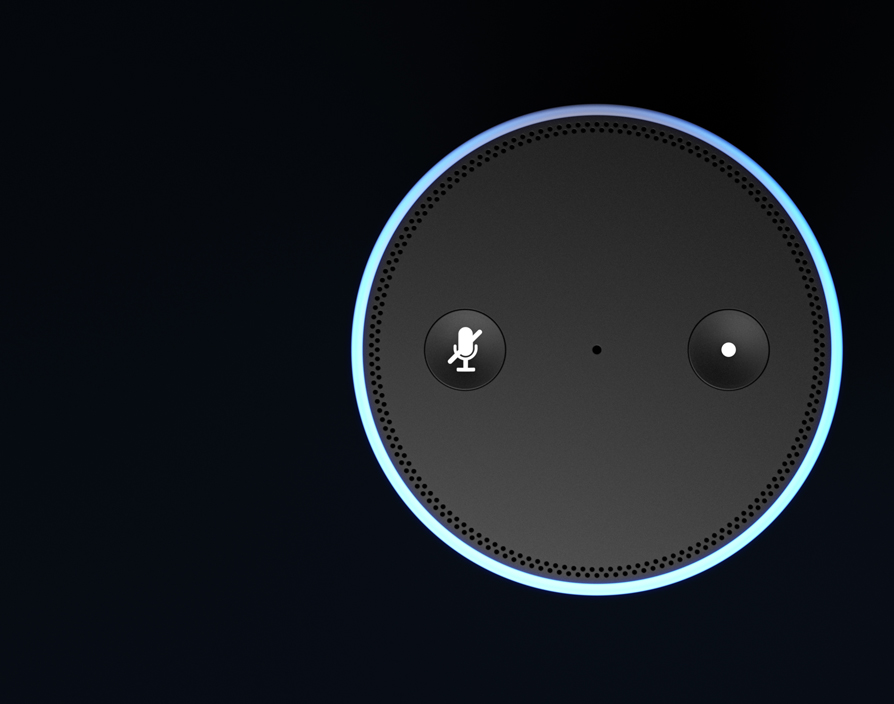Contrary to what Elvis Presley’s classic rock anthem may suggest, retailers shouldn’t have a little less conversation. With the rise of devices like Apple HomePod, Amazon Echo and Google Home, shop-owners have the opportunity to boost their turnover tremendously. “The impact of voice-controlled devices on the retail market will be huge,” says Jack Barmby, CEO and founder of Gnatta, the customer-communications platform.
And these opportunities don’t come a minute too soon with traditional retailers increasingly struggling to remain on the high street. Earlier in April, Carpetright, the flooring and carpet vendor, and Mothercare, the baby-centric retailer, revealed they plan to roll back their operations, joining a long list of companies like Toys R Us, BHS and Austin Reed that have become victims to the retail apocalypse.
For traditional retailers like these, adopting the latest tech could provide a fighting a chance as more people buy everything from clothes to food online. But, while things like augmented reality could provide a way bring the ease of the online world into stores, getting serious about Amazon Alexa could unlock a whole new era of customer loyalty. “A good voice experience will be a differentiator for brands,” says Barmby. “It will increase loyalty as people will enjoy both the novelty and the convenience of communicating via Alexa or Google Home.” Not only is it easier than viewing information via text but it’s also more personal and convenient. “You’re also talking to customers in their environment rather than [on] the website, [which is] the brand’s environment,” Barmby says.
Given the dominance of smart speakers like the Amazon Echo or Google Home, it’s easy to forget they’re not the only type of devices with smart assistants. From Samsung Galaxy S8 to iPhone X , every smartphone released over the last two years has seemingly hit the markets complete with their own version. The result is that the more consumers chat with Bixby, Alexa and Siri. And as they do, they’re also becoming likelier to ask for help with their shopping.
Indeed, Narvar, the retail-tech startup, expects the number of people using voice-controlled devices to triple in 2018, according to a recent survey. “Adoption of voice-controlled devices has accelerated in 2017 and for retailers and brands this represents an important new channel for personalised customer communications,” said Amit Sharma, CEO of Narvar, at the time of the report’s release. “Although it’s still early days, we have found that UK consumers are already using voice for shopping and that activity will increase.”
The new gadgets don’t just have the potential to create more online sale but can also increase footfall in high street stores. For example, recent research from iProspect, the performance marketing agency, showed that of the people who use voice-controlled devices intending to make a purchase, a tenth used it to find shops. “[A] shopper looking for the nearest place to buy a pair of jeans may now search ‘where can I buy Levi 511s’ rather than ‘Levis shop nearby’,” says Caroline Reynolds, director of performance media products at iProspect. “The obvious benefit to brands is that these longer searchers are much richer in consumer intent insight, which can be used to optimise the user experience with more relevant and engaging content.”
Even though it’s still early days for this technology, the ramifications for the retail scene could potentially be huge. “It has opened the gateway for both retail and tech players to become central to our lives,” says Hugh Fletcher, global head of consultancy and innovation at Salmon, the e-commerce consultancy. “Over time, it will enable them to grow their influence as they have a direct channel into the home. Voice-controlled devices will inevitably revolutionise the way we as consumers search for products and will create increased competition to be the brand that owns a customer’s primary interaction. This all culminates in the ability to change the way we shop and influence how we choose brands and which ones to be loyal to.”
Moreover, whenever people use their devices they create a wealth of data. “The questions people ask will be gold dust in data terms,” says Barmby. “They’ll give real insight to everything from purchasing patterns to customer service. The key will be linking that data to everything else you know about the customer.”
However, herein lies one of the problems for retailers: this data is heavily controlled by the developers of these devices. “[While] voice-controlled devices are great opportunity, the fact that the digital innovators are owning this space – both in terms of hardware and the services – is a risk to retailers, many of whom are planning their e-commerce futures with screens in mind,” says Fletcher.
“The risk is that customers will default to these new, easy and convenient interfaces, away from the retailers and will gradually shift their shopping habits. A quick glance at grocery and fashion shows that while retailers still remain strong in these sectors, companies like Amazon investing heavily in creating the infrastructure to revolutionise customer experience. Just take Amazon Go and [Echo Look] for instance.”
Even though there are challenges attached to adopting any technology, it’s safe to say that retailers have everything to win about ignoring the king of rock and roll for the benefit of voice-controlled devices. ![]()
Share via:








































